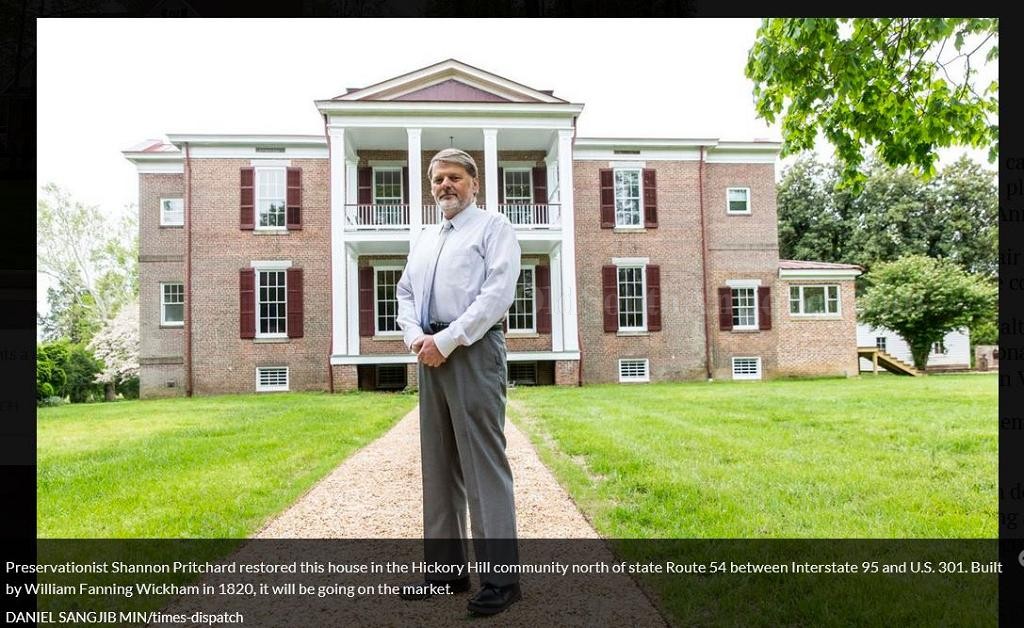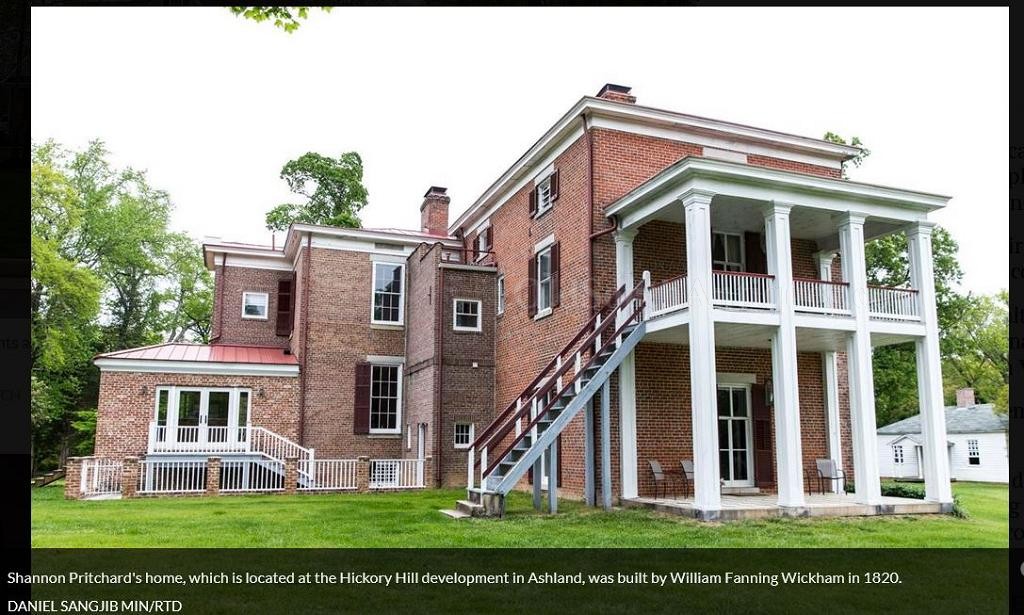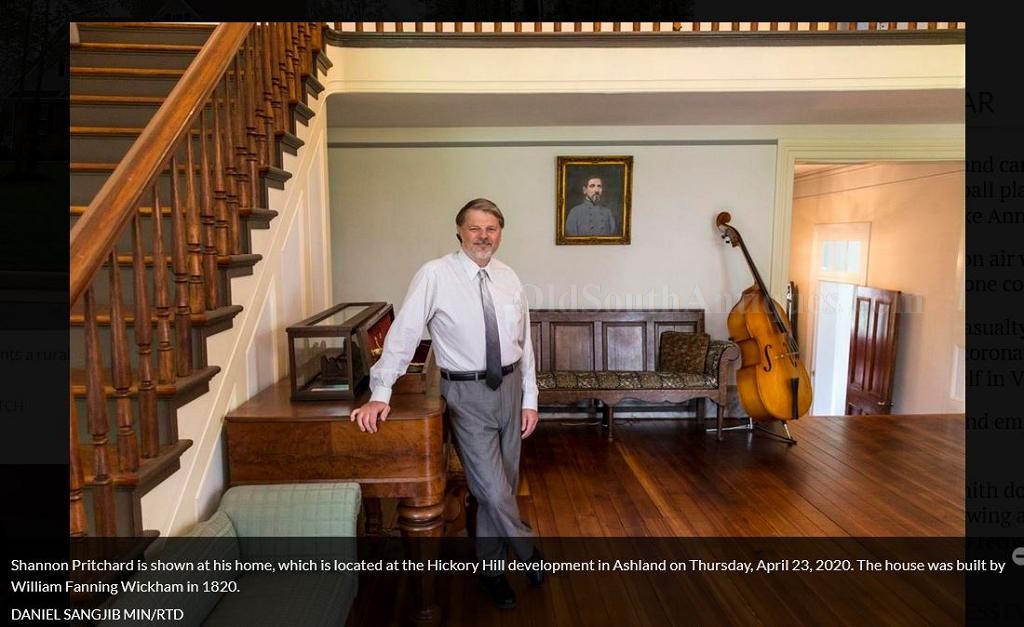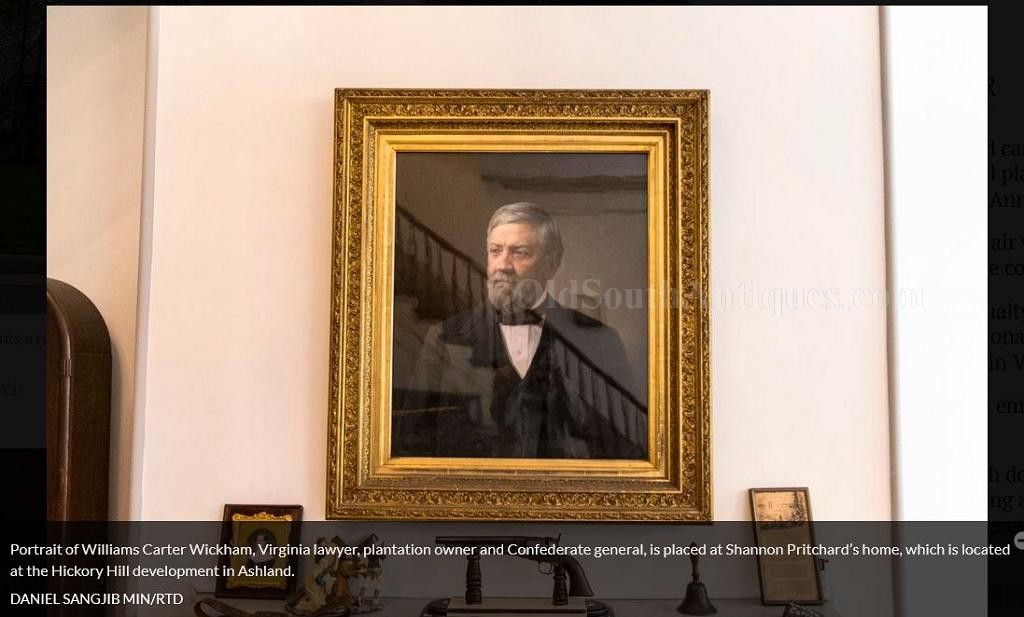
| Catalog | Past Items | Order Info | Terms/Conditions | About Us | Inventory Clearance |

Be Sure and check out the video

Be Sure and check out the video

Be Sure and check out the video

Be Sure and check out the video
Hickory Hill's grounds and gardens, designed in 1820, represent one of the largest and best examples of ante-bellum landscaping. The gardens included an avenue of cedar and box 300 feet long; a boxwood maze as well as magnolias and roses planted by Anne Carter from "Shirley”. The off-spring of Anne Carter's roses include: Noisettes, Champney, La Tourtrelle, White Rose of Province, River's George the Fourth, La Reine, Giant of Battles, Baron Provost, Seven Sisters and the ever-blooming pink daisy. Two ginkgo biloba trees brought from Japan by Commodore Perry in 1854 grace the south lawn. These were two of twelve presented to Commodore Perry by the Emperor of Japan.
Hickory Hill also includes an exceptional group of out buildings that are considered unparalleled in the state and remain historically important in their own right. This grouping includes "Mammy’s House” a smokehouse, greenhouse, carriage house, stables, kitchen, Plantation office, root cellar, spring houses, barn and the brick, family graveyard. All are in various state of restoration. For many years, a depot and warehouse were located on the railroad that runs through the plantation. Like his father John Wickham, William Fanning Wickham (1793-1880) was a prominent attorney of early Richmond. He retired early to "Hickory Hill" and devoted the rest of his life to his family and agriculture. His long series of diaries beginning in 1828, record little of a personal nature but much on agricultural operations, weather, the sale of produce, plantation life, horse breeding, and local affairs. Many diaries include lists of slaves at "Hickory Hill" and adjoining plantations, along with records of slave births and deaths.
Of the seventeen diaries, Volume 8 describes the Hanover County home front during the Civil War. Wickham describes the treatment of slaves, noting runaways to the Union Army and mentions a battle near "Hickory Hill" on May 27, 1862. In fact, news of campaigns and Union raids during the summers of 1862 and 1863 are also noted. The War Between the States brought desolation in its train. When General William Henry Fitzhugh Lee, desperately wounded, was taken prisoner, his brother Robert E. Lee, Jr., made his escape, as graphically described in his Recollections and Letters of General R. E. Lee. Here Rooney Lee parted forever with his wife and two children, going to the prison at Fortress Monroe. General Robert E. Lee’s family stayed at Hickory Hill during a portion of the War, and General Lee visited there before, during and after the War.
Legendary figure James Ewell Brown "Jeb” Stuart, ranked one of America's great cavalry commanders, fought his last battle near Hickory Hill on May 11, 1864. Twice, each year during 1863 and 1864 both armies swept over Hickory Hill. Stuart was another visitor to Hickory Hill and his family stayed there for a time during the War.
Hickory Hill was also home to Brigadier General Williams Carter Wickham CSA as well as Henry Taylor Wickham. Williams Carter Wickham, son of William Fanning Wickham, was a distinguished statesman, military leader and businessman. He served in the Virginia House of Delegates and the Virginia Senate. He led Hanover troops in the War of 1860, rising to the rank of Brigadier General. In 1863 he was elected to the Confederate Congress, resigning his commission. He later served as President of the Virginia Central Railroad (later Chesapeake & Ohio Railroad).
Henry Taylor Wickham was the General's son. He was sent to college and received his law degree at the University of Virginia in 1870. He was elected to the House of Delegates in 1879. In 1888 he was elected to the state Senate to fill the vacancy occasioned by the death of his father. He was elected again in 1923 and served until his death in 1943. His son, Capt. Williams Carter Wickham, US Navy, graduated from Annapolis in 1909. He lived at Hickory Hill until his death in 1985, just five days shy of his 98th birthday.
*The Virginia Historical Society's Library & Manuscripts Collections is home to the Wickham Collection.
Copyright © 2025 OldSouthAntiques.com All Rights Reserved.
Privacy Policy | Terms of Use
Powered by Web-Cat Copyright © 1996-2025 GrayCat Systems